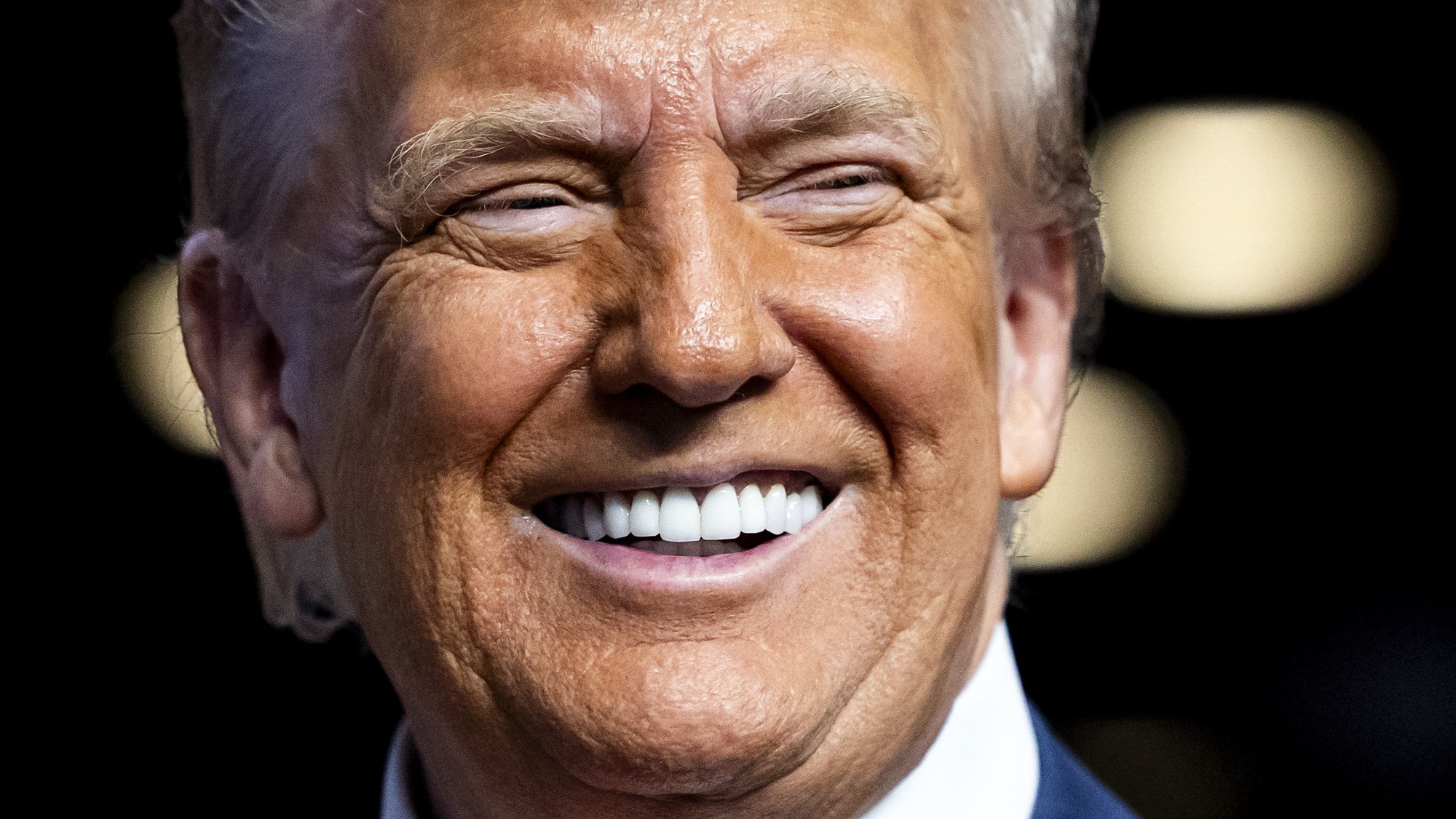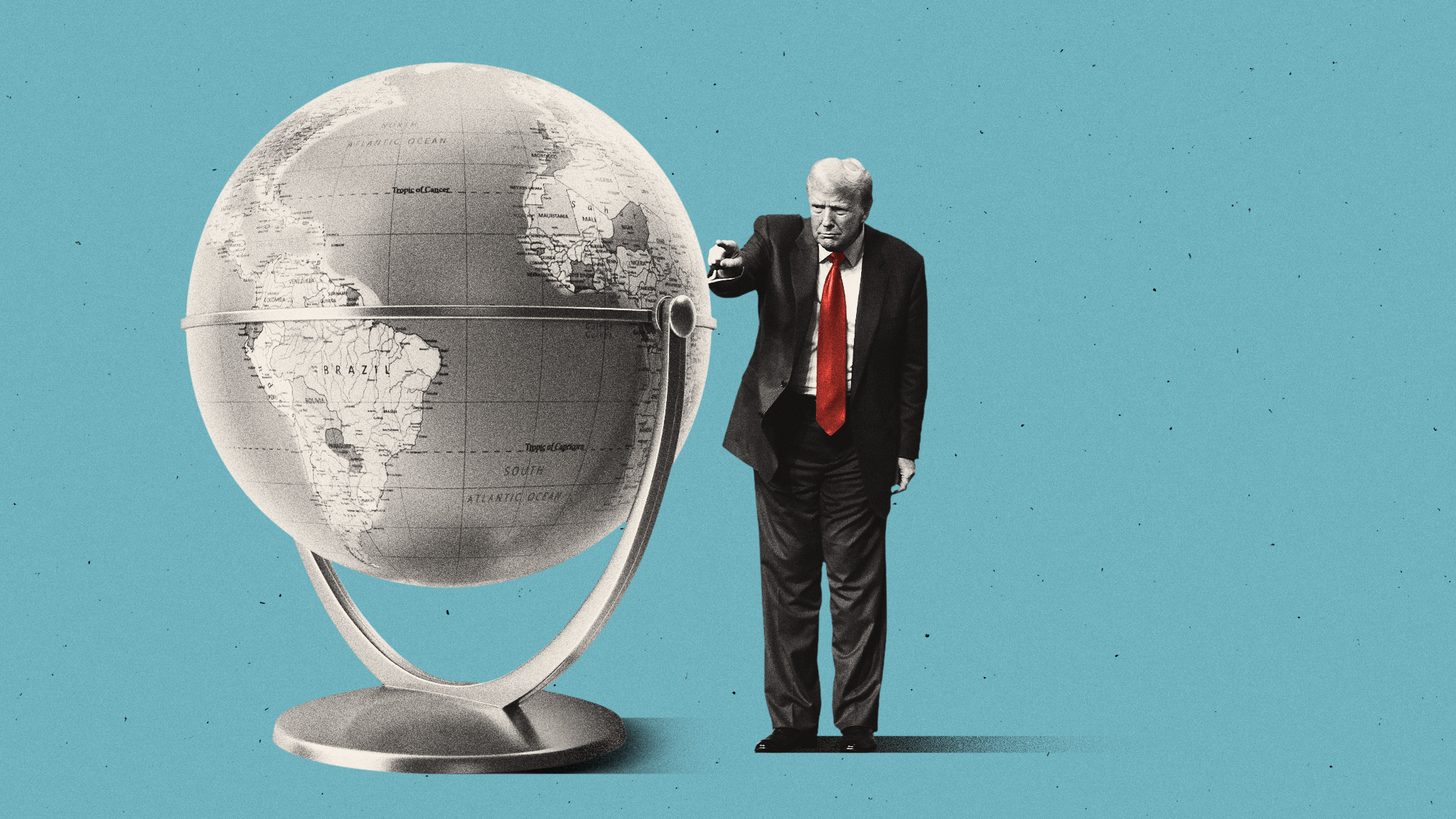How long can Nato keep Donald Trump happy?
Military alliance pulls out all the stops to woo US president on his peacemaker victory lap

"Daddy has to sometimes use strong language."
That was the Nato's Secretary General Mark Rutte's assessment of Donald Trump's expletive-laden criticism yesterday of Israel and Iran, with Rutte's obsequious language a hallmark of today's Nato summit where the US president was pandered to at every turn, but at what cost?
It was an "extraordinary spectacle" at the summit, Lewis Goodall posted on X. Trump isn't being treated by Rutte and fellow world leaders now as a partner or equal, "but rather a sort of world king with themselves relegated as courtiers".
The Week
Escape your echo chamber. Get the facts behind the news, plus analysis from multiple perspectives.

Sign up for The Week's Free Newsletters
From our morning news briefing to a weekly Good News Newsletter, get the best of The Week delivered directly to your inbox.
From our morning news briefing to a weekly Good News Newsletter, get the best of The Week delivered directly to your inbox.
What did the commentators say?
Nato leaders were "flattering, toadying, buying into Trump's frequent nonsenses and half-truths and treating him as something different than before, because he is", said Goodall. "It's reflective of their weakness, and Trump's strength."
In one sense it appears to have worked, with Donald Trump telling reporters "we're with them all the way" when it comes to Article 5, despite earlier casting doubt on his commitment to the alliance's mutual defence guarantees.
Rutte "designed this summit around Trump", said BBC Europe editor Katya Adler. To "flatter him" he has managed to build consensus amongst members for "massive hikes in defence spending, to show that Europeans would now take more responsibility for their own security".
On the big takeaway from the summit – the commitment for Nato countries to increase defence spending to 5% of GDP by 2035 – Trump can rightly claim victory.
A free daily email with the biggest news stories of the day – and the best features from TheWeek.com
On this, at least, he is correct that "Europe needs to become more self-sufficient", said The Washington Post. Though the US commitment to the alliance "should remain iron-clad, Washington must also make major investments in other theatres", as the recent strike on Iran and rising threat of China has shown.
What next?
But for all of Trump's chutzpah the biggest issue facing Nato – Ukraine – remains unresolved. In the final declaration of the summit, there is no mention of Russian aggression in Ukraine.
It is telling that, unlike previous summits, Ukrainian President Volodymyr Zelenskyy was also not invited to the closed-door leaders' session.
The lack of further concrete commitments will no doubt be "disappointing" for Ukraine, Jamie Shea, a former Nato spokesperson and deputy assistant secretary general, told The Guardian, "especially as most allies would have wanted much stronger language on support, the open door for Ukraine's Nato membership and a clearer path on sanctions against Russia".
What the last week has shown "is we're living in a world where the truly special relationship America has under Trump isn't with Nato, it's with Israel", said Goodall. While there is "no doubt Trump would defend Israel when it's under threat", there cannot be the same certainty about Europe.
-
 High Court action over Cape Verde tourist deaths
High Court action over Cape Verde tourist deathsThe Explainer Holidaymakers sue TUI after gastric illness outbreaks linked to six British deaths
-
 The battle over the Irish language in Northern Ireland
The battle over the Irish language in Northern IrelandUnder the Radar Popularity is soaring across Northern Ireland, but dual-language sign policies agitate division as unionists accuse nationalists of cultural erosion
-
 Villa Treville Positano: a glamorous sanctuary on the Amalfi Coast
Villa Treville Positano: a glamorous sanctuary on the Amalfi CoastThe Week Recommends Franco Zeffirelli’s former private estate is now one of Italy’s most exclusive hotels
-
 What is ‘Arctic Sentry’ and will it deter Russia and China?
What is ‘Arctic Sentry’ and will it deter Russia and China?Today’s Big Question Nato considers joint operation and intelligence sharing in Arctic region, in face of Trump’s threats to seize Greenland for ‘protection’
-
 New START: the final US-Russia nuclear treaty about to expire
New START: the final US-Russia nuclear treaty about to expireThe Explainer The last agreement between Washington and Moscow expires within weeks
-
 What would a UK deployment to Ukraine look like?
What would a UK deployment to Ukraine look like?Today's Big Question Security agreement commits British and French forces in event of ceasefire
-
 Would Europe defend Greenland from US aggression?
Would Europe defend Greenland from US aggression?Today’s Big Question ‘Mildness’ of EU pushback against Trump provocation ‘illustrates the bind Europe finds itself in’
-
 Greenland, Colombia, Cuba: where is Donald Trump eyeing up next?
Greenland, Colombia, Cuba: where is Donald Trump eyeing up next?Today's Big Question Ousting Venezuela’s leader could embolden the US administration to exert its dominance elsewhere
-
 Did Trump just end the US-Europe alliance?
Did Trump just end the US-Europe alliance?Today's Big Question New US national security policy drops ‘grenade’ on Europe and should serve as ‘the mother of all wake-up calls’
-
 Is conscription the answer to Europe’s security woes?
Is conscription the answer to Europe’s security woes?Today's Big Question How best to boost troop numbers to deal with Russian threat is ‘prompting fierce and soul-searching debates’
-
 Trump peace deal: an offer Zelenskyy can’t refuse?
Trump peace deal: an offer Zelenskyy can’t refuse?Today’s Big Question ‘Unpalatable’ US plan may strengthen embattled Ukrainian president at home